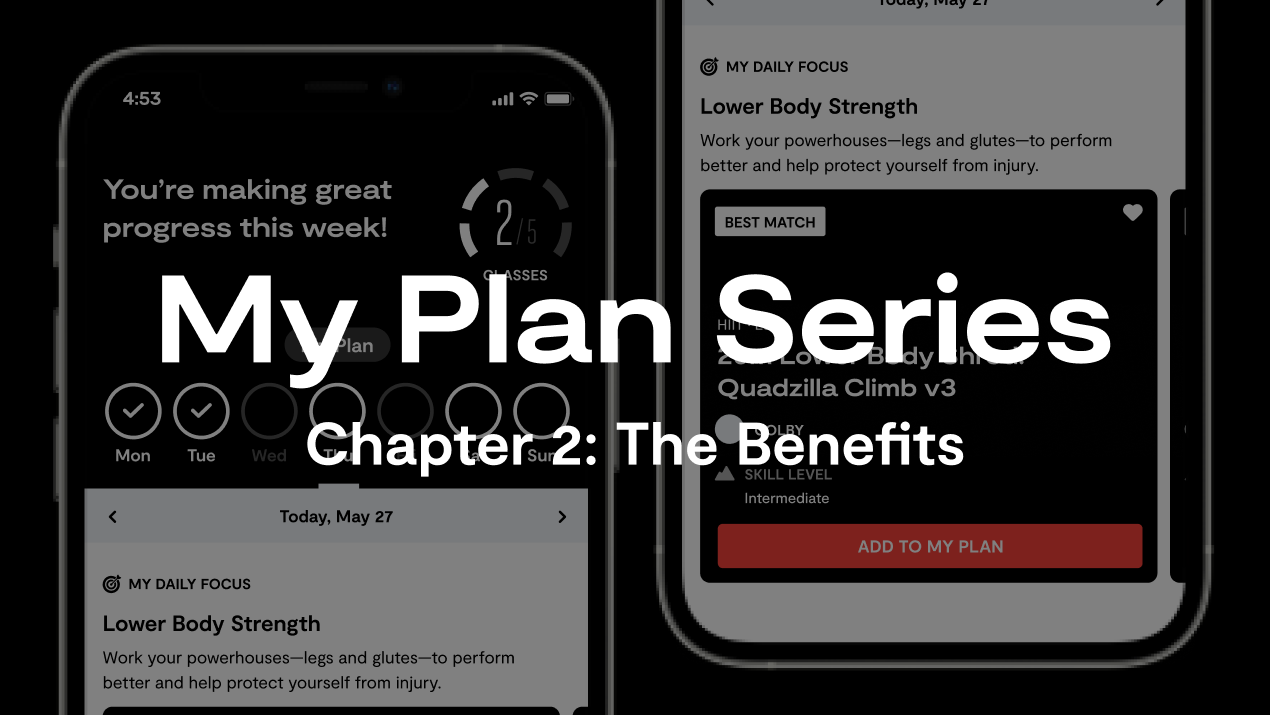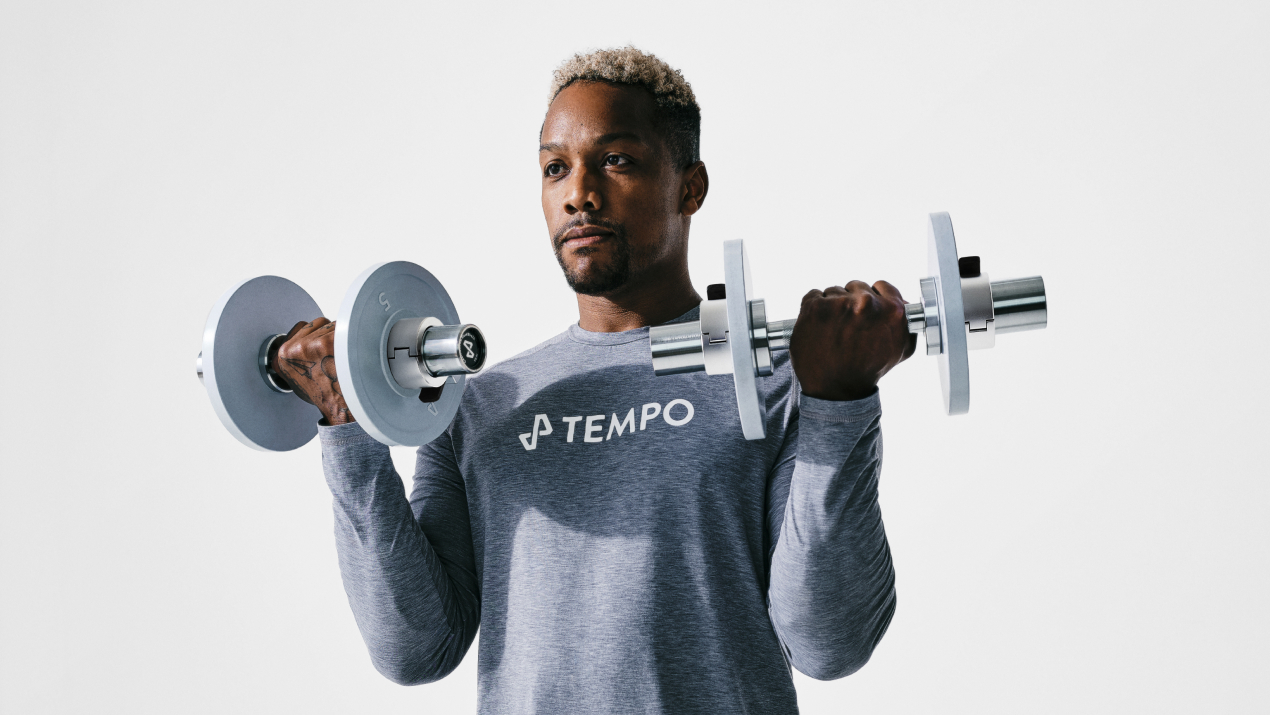You might be experiencing a range of emotions at the mere thought of losing weight. Excitement. Stress. Anxiety. Pressure. Fear. What if it doesn’t work? What if you lose weight and then gain it all back? What if you put all this work in and still aren’t happy after the fact? It’s not uncommon to feel this way when we live in a society where there’s a hyperfocus on being thin and lean–even if that doesn’t always equate to a “healthy” body.
Stop and take a breath. Let’s talk about how to make the best of this experience, get the results you want, and still stay body positive.
Here are a few helpful reminders to help you embrace your incredibly empowering fitness journey.
1. Your Weight is Not Equated to Your Worth
We need to make one thing very clear: The number on the scale or the size of your jeans ultimately has absolutely nothing to do with who you are as a person. Hollywood and social media might want you to think otherwise. But being “skinny” doesn’t make you any sexier, smarter, or more successful. And being “fat” doesn’t mean that you’re lazy, sloppy, or a failure.
Amanda Montgomery, an RD and LDN from the Collaboratory for Health Justice writes, "Public Health’s focus on “obesity” prevention has increased exponentially within the last few decades, and with it an increase in weight stigma and negative attitudes towards people in larger bodies. In the past decade, weight discrimination has increased by 66 percent, and is one of the only forms of discrimination actively condoned by society.”
This means that as you’re hitting your weight loss goals, you’ll want to stay diligent in understanding your “why” and not society’s perceptions of what a “good body” looks like. Weight loss doesn’t make you any better of a person and it won’t necessarily solve other problems in your life, either. If you have deeply rooted issues of insecurity stemming from your childhood, no amount of weight loss will resolve that. There is other work to be done.
We say all of this to offer you a gentle reminder: You are already a wonderful person. You are worthy of love, respect, and happiness. Your weight does not define this.
2. Your Body Rocks! Listen to it.
Your body can do amazing things, and it’s extremely adaptable. Losing weight requires changes. You’re going to need to swap out old habits for newer, healthier ones. You might be working with a coach, trainer, nutritionist, or another sort of weight loss professional. They might be perfectly qualified, but remember this: Nobody knows your body better than your own body does.
Maybe you normally work out Monday through Friday, but by the time Friday hits, you’re exhausted. Your energy is gone, you have muscle soreness you can’t seem to get rid of, your appetite is funky, and you’re not sleeping. These are classic symptoms of
overtraining syndrome, and they might mean you need to scale back and rethink.
Perhaps your nutrition coach lowered your carbs to 150 grams a day. But one day, you hit that limit and still feel ravenous. It’s perfectly okay to help yourself to some more rice, sweet potatoes, or oatmeal, and no, it won’t derail all of your weight loss efforts.
Neither your fitness journey nor the way your body reacts to your new habits will be a linear progression. You’re going to experience challenges, so listen to what your body is telling you. It won’t let you down.
3. Get Enough Sleep
Did you know that there’s a direct relationship between sleep and weight management? For instance, one study found that
participants who slept more reduced their calorie intake by approximately 270kcal each day.
Here’s why: Your hunger cues and feelings of fullness are triggered by two
neurotransmitters: ghrelin (hunger) and leptin (fullness). Not getting enough sleep could affect both. For example, one study found that men who got four hours of sleep had higher levels of ghrelin and lower levels of leptin compared to men who got 10 hours of sleep. Furthermore, a lack of sleep can affect the
types of food you crave, causing you to
lean more toward calorie-dense and carby eats.
We know that it can be hard to make time for sleep. But for the sake of your weight loss goals — and your health, in general — it’s imperative that you prioritize your slumber.
4. Don’t Compare Your Weight Loss Journey to Others
We get it. We all compare ourselves to someone else at
some point. However, letting this get out of hand can be extremely harmful to your
mental health — and thus, the progress you make with your weight loss. Some
research tells us that as much as 10% of our thoughts include comparisons of some sort.
It makes sense, unfortunately. We might be spending about
2.5 hours on social media each day. And sure enough, one
survey found that about 23% of women and 18% of men say that social media impacts their body image. Furthermore, about 88% of women and 65% of men said that they compare themselves to what they see in the media.
We know that you already know this, but we’re going to remind you anyway: What you see on social media often isn’t real, especially when it comes from influencers. Airbrush, perfect lighting, expensive cameras — they have all the resources they could need to put their best foot forward. Also, for some of these people, fitness is their full-time job! While pretty to look at, this isn’t reality. Keep it positive by keeping it real. You are on your own journey and no one else’s.
5. Set the Right Kinds of Goals
It’s important to consider what
types of goals you want to set. For instance, is this purely about
losing fat and making the number on the scale go down? That may or may not be the best approach. The reason is simple: The number on the scale doesn’t tell the full story!
Think about it. Let’s say that you want to lose 20 pounds, so you start strength training and clean up your diet. You stay consistent and three months later, your clothes are baggy. Success! But then you step on the scale and realize you’ve only lost three pounds. What gives?! As we said before, the number on the scale doesn’t matter. What does is how you feel, how your clothes fit, and the motivation you build to change your outlook from “I don’t know if I can do this” to “I did this!”
We call that a win, and you should too.
6. Consider Your Long-Term Health
So if the number on the scale isn’t the most important goal to set, what is?
What about fitting into your favorite jeans? Being able to keep up with your young kids? Or being able to go on a long outdoor hike without being winded? Those all coincide with weight loss, too.
What if you set a goal around overall body composition, instead? Research shows that measuring percentage of body fat lost overtime is a much better measure of progress than weight loss. (
You can find and schedule accurate scans in your zip code here.) You can remain body positive by not letting the numbers completely consume you.
You should set realistic goals that are about your long-term health, and not just quick “fixes.” If you’re trying to lose 50 pounds or 15% bodyfat, expecting that to happen in a couple of months isn’t feasible. Not only is this very unlikely to happen, but even if it did, it could be incredibly dangerous to your health and difficult to even sustain.
Something closer to a pound or 0.5% body fat a week might not sound as exciting, but it’s a safe rate to lose weight at, and it’ll be easier to keep off in the long run.
Get Started with Tempo
We want to reiterate a few things:
► Losing weight won’t make you worthy. You are already worthy.
► Your body is always talking to you. Listen.
► “I’ll sleep when I’m dead.” No, stop! Sleep regularly, and sleep enough.
► No two fitness journeys look alike. Avoid comparing yourself to others. When you compare, no one wins.
► Set goals that you can safely reach and maintain.
► The number on the scale doesn’t define your success.
We will never tell you that you’re too fat, too skinny, too curvy, not curvy enough. But we
are here to be your forever cheerleader. Tempo wants you to be your happiest, healthiest self, and we can help. We offer more than
2,000 guided workouts across various modalities and sports — from
yoga and strength to cardio and
HIIT. Each workout is led by one of our experienced trainers, who ensure you exercise efficiently and safely. You can
customize your workouts based on your goals, get real-time feedback, and
track your progress over time — all without having to leave your house. Plus, with our dedicated
1:1 Fitness Coaching service, you’ll have an accountability partner in your corner to help you with your progress.
If losing weight is one of your fitness goals, you don’t have to do it alone.
Join our community and experience a new way of getting fit.












